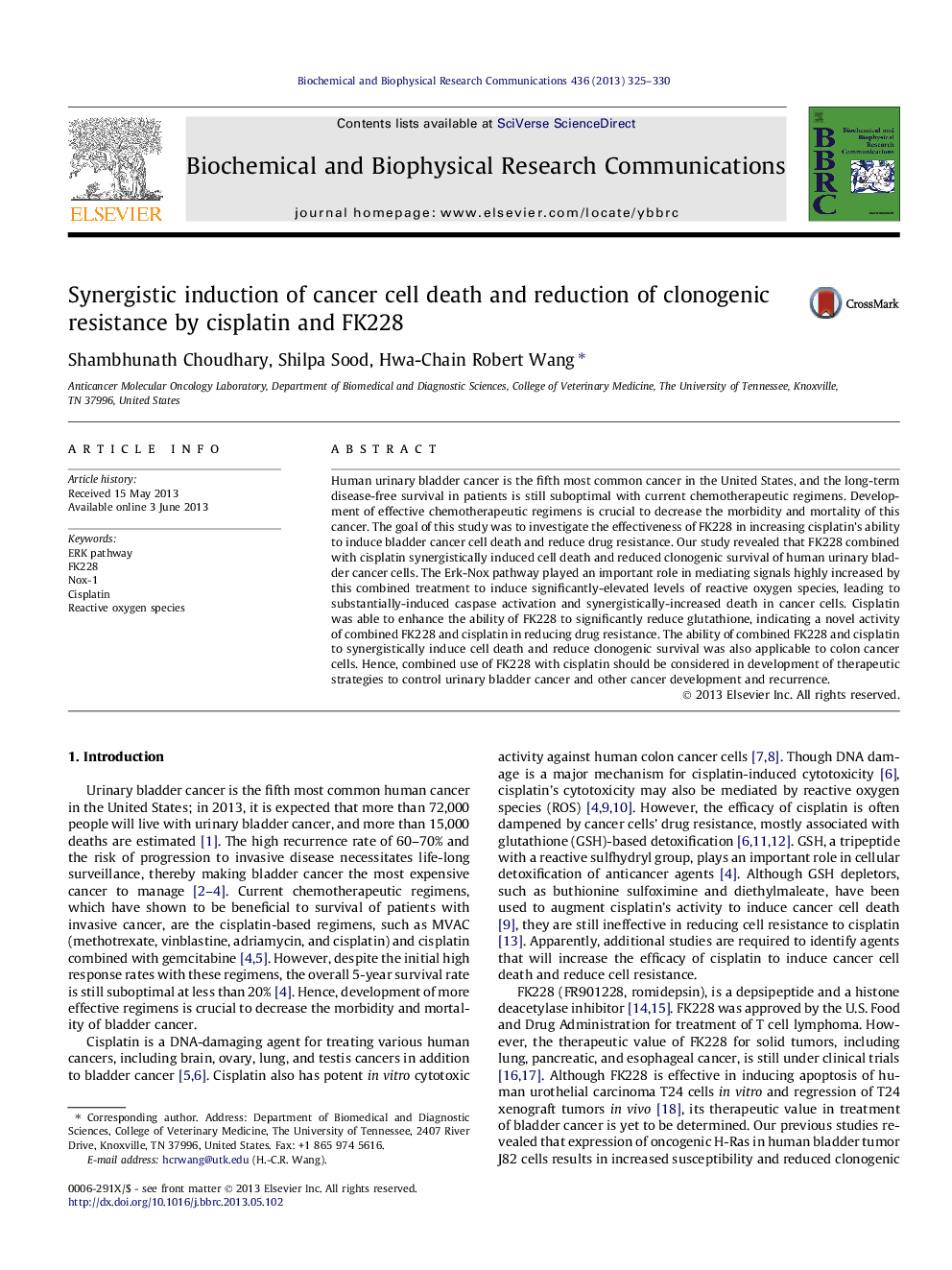| Article ID | Journal | Published Year | Pages | File Type |
|---|---|---|---|---|
| 10759268 | Biochemical and Biophysical Research Communications | 2013 | 6 Pages |
Abstract
Human urinary bladder cancer is the fifth most common cancer in the United States, and the long-term disease-free survival in patients is still suboptimal with current chemotherapeutic regimens. Development of effective chemotherapeutic regimens is crucial to decrease the morbidity and mortality of this cancer. The goal of this study was to investigate the effectiveness of FK228 in increasing cisplatin's ability to induce bladder cancer cell death and reduce drug resistance. Our study revealed that FK228 combined with cisplatin synergistically induced cell death and reduced clonogenic survival of human urinary bladder cancer cells. The Erk-Nox pathway played an important role in mediating signals highly increased by this combined treatment to induce significantly-elevated levels of reactive oxygen species, leading to substantially-induced caspase activation and synergistically-increased death in cancer cells. Cisplatin was able to enhance the ability of FK228 to significantly reduce glutathione, indicating a novel activity of combined FK228 and cisplatin in reducing drug resistance. The ability of combined FK228 and cisplatin to synergistically induce cell death and reduce clonogenic survival was also applicable to colon cancer cells. Hence, combined use of FK228 with cisplatin should be considered in development of therapeutic strategies to control urinary bladder cancer and other cancer development and recurrence.
Related Topics
Life Sciences
Biochemistry, Genetics and Molecular Biology
Biochemistry
Authors
Shambhunath Choudhary, Shilpa Sood, Hwa-Chain Robert Wang,
